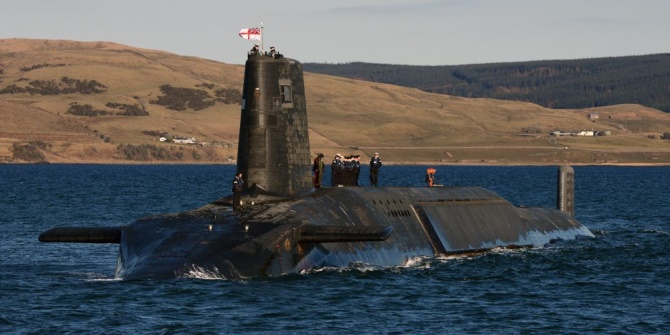 At the close of 2011, British Politics and Policy at LSE asked our contributors for their thoughts and predictions for 2012. As part of this continuing series, Chris Brown looks at what 2012 may bring for the UK’s foreign policy – so called ‘known knowns’ such as our continuing involvement in Afghanistan, and the effects of our flat economy on defence policy, and ‘unknown knowns’ like Iran’s nuclear ambitions.
At the close of 2011, British Politics and Policy at LSE asked our contributors for their thoughts and predictions for 2012. As part of this continuing series, Chris Brown looks at what 2012 may bring for the UK’s foreign policy – so called ‘known knowns’ such as our continuing involvement in Afghanistan, and the effects of our flat economy on defence policy, and ‘unknown knowns’ like Iran’s nuclear ambitions.
When it comes to foreign and defence policy, the first point that anyone attempting to look ahead must make is how inherently unpredictable world politics can be. As far as I know, none of the prediction made for 2011 in December 2010 included anything remotely like the Arab Spring, and although the notion that there would be a Eurozone crisis in 2011 was a commonplace, few realised how serious it would be. So in looking ahead I will adopt the classification for which Donald Rumsfeld has become immortal, and divide my comments into ‘known knowns’, ‘unknown knowns’ and ‘unknown unknowns’.
A known known is that British troops will remain in Afghanistan in 2012, and this will be a source of controversy and occasional sadness as the death toll – modest, but for the families involved, devastating – mounts. The situation in Afghanistan is probably better than we think it is, but much worse than we had hoped for ten years ago. We will continue to pay the price for mistakes made in 2002 and 2003 when the west took its eyes off the Afghan ball – but the Afghan people will pay an even heavier price.
An unknown known concerns the consequences of Iran’s nuclear ambitions. It seems clear that Iran is bent on becoming a nuclear power and that Israel is bent on preventing this happening; at the moment the campaign against Iran’s nuclear aims is being conducted via sanctions and covert operations (virtual and real). This could change and British defence planners will already be considering their options if Israel or the US strikes on Iran – will it be possible for the UK to stand aside? Perhaps more to the point, whether we are involved or not, we will have to cope with the political and military consequences of such an attack – for example, if Iran closes the Straits of Hormuz will we be involved in re-opening them?
So much for the first two categories; the point of Rumsfeld’s lapidary words is that commenting on the third category – the unknown unknowns – is pretty much impossible. How can we talk about the things we don’t know we don’t know? All we can say is that there are such things out there, waiting to happen and waiting to pose problems.
Finally, it is worth noting the words of the chief of the defence staff General Sir David Richards, who in a speech to the Royal United Services Institute on 14 December identified the Eurozone Crisis and the economy more generally as the ‘biggest strategic risk facing the UK’. ‘No country can defend itself if bankrupt’ he pointed out. General Richards was upbeat about the consequences of the Strategic Defence Review (surprisingly so perhaps) and about Afghanistan, but was clear that a thriving economy is central to this country’s grand strategy – which is a depressing note to end this short survey on, since a thriving economy seems very unlikely in 2012, or 2013 for that matter.
Please read our comments policy before posting.





